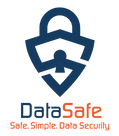Remote Workspaces Redefine Cybersecurity Policies
The lockdown prompted an unplanned shift from a traditional workplace to remote workspaces. As economies recover, employees are split between the office and working from home.
Organizations, including those in Rockaway, NJ, are redefining the workspace to find a lasting solution. A hybrid model is emerging as organizations work to coordinate the workweek. Companies strive to retain company culture and employ engagement as they migrate.
But the hybrid model has another challenge: cybersecurity. The migration was abrupt, and businesses had no time to evaluate their system or prepare for the shift.
As such, the migration exposes organizations to network and social engineering vulnerabilities. Hybrid models create a gray area between personal and work computing devices.
It is essential to identify the unique challenges in managing security across virtual workstations. Businesses have to upgrade their systems to protect staff and customer privacy.
Cybersecurity on Mobile Platforms and Devices Becoming a Priority

Portable devices have become ubiquitous as a tool for business networking, shopping, or booking flights. Hackers are increasingly exploiting mobile devices to find vulnerabilities to launch an attack.
Some statistics suggest that such attacks are partly due to the lack of awareness. A report by Intel Security found that 97% of users cannot correctly identify a phishing email. A single misidentification could make your business a victim of data breaches.
Mobile devices are becoming increasingly attractive to fraudsters and hackers. According to cybercrime statistics, 70% of attacks in 2019 resulted from a mobile channel. Cybersecurity analysts also noted that hackers continually develop more sophisticated strategies every year.
Businesses need to develop fool-proof systems to counter cybersecurity attacks. That may call for an overhaul of your data management policies. For example, avoid using channel integration platforms to automatically log in to Facebook, Twitter, store, and email accounts.
Your fool-proof cybersecurity policies should also incorporate multi-factor authentication as a standard across the organization. Raising awareness can also help the company reduce vulnerabilities against phishing attacks. In the past, hackers have gained access to sensitive consumer data through weak passwords.
The Rise of IoT, 5G, and AI
The technology has grown in sophistication, creating new opportunities for cyberattacks. Global organizations are also adopting 5G and IoT. One of the factors facilitating the growth is the migration to remote work.
IoT consists of endpoints on the network besides computers, servers, and hubs. That includes smartwatches, intelligent electronics, and voice assistants like Amazon Echo. The devices have numerous potential applications in security and healthcare.
However, IoT devices may increase the number of vectors hackers use to launch attacks. Most devices have limited processing capabilities. IoT security will focus on many cybersecurity experts in the coming decade.
One of the security solutions small businesses can implement in Rockaway, NJ, is network monitoring. Data Safe Group provides network monitoring services for all the endpoints in your IT infrastructure. The service not only protects the network but can also boost productivity.
Dealing With the Evolving Nature of Social Engineering Attacks
Social engineering involves manipulating people to give up their confidential information. The perpetrator searches for security vulnerabilities and approaches the victim to gain their trust. Social engineering attacks can be hard to predict because they do not rely on devices or software updates.
In recent times, social engineering attacks have become more sophisticated. New tactics include using scareware, which deceives users that something is wrong with their computer. The software may prompt the user to install a patch that installs malware.
The most recent social engineering attacks are SMS phishing and SIM jacking. The perpetrators are increasingly targeting staff who often are unaware. The attacks may vary according to the location or profile of the victim.
Data Privacy Concerns and Challenges With Compliance in the Future
There have been increasing concerns over privacy in recent years. Many users are becoming anxious over data exploitation for marketing or political espionage. But policy-makers in different regions are taking steps to protect their citizens.
The EU represents a quarter of the total global market. Businesses must understand regulations to access markets across the globe. For example, GDPR regulations apply to all businesses and organizations accessing EU markets.
The GDPR assigns the responsibility of safeguarding user data to the organizations to protect users. The requirements are extensive and are captured in a 50,000-word document.
The rules require your organization to identify every piece of sensitive user data. That means conducting an audit of all the information you have on your customers. While the prospect of compliance may seem daunting, it may have several cybersecurity benefits.
GDPR compliance encourages a thorough evaluation of the customer data you store. It is an opportunity to pinpoint instances of redundancy to streamline your data management systems. You can reorganize your IT infrastructure and implement a platform with structured and accessible information.
Developing Robust Cloud Services
Rockaway, NJ, small businesses are increasingly turning to cloud services to support remote work and other critical operations. The level of protection may vary among the many cloud providers. Some do not have encryption to secure the data.
Poorly configured cloud platforms accounted for $4 million in data breaches. As more SMEs adopt cloud services, IT security professionals eliminate vulnerabilities and protect businesses.
Small businesses should understand the risks before migrating to cloud networks. The organization should deploy a robust IT security network and avoid implementing piecemeal remedies.
Machine learning and AI are some of the solutions for containing cyberattacks. AI software can monitor and pinpoint vulnerabilities promptly. Many organizations are oblivious of the gaps in your security framework hackers could exploit to compromise data.
Small businesses can take proactive steps to protect their staff and clients and reduce the risk of cybersecurity breaches. Network management can be frustrating if the implementation is incorrect. You can rely on Data Safe LLC’s world-class Network Operations Center in Rockaway, NJ, for remote monitoring and management software.

